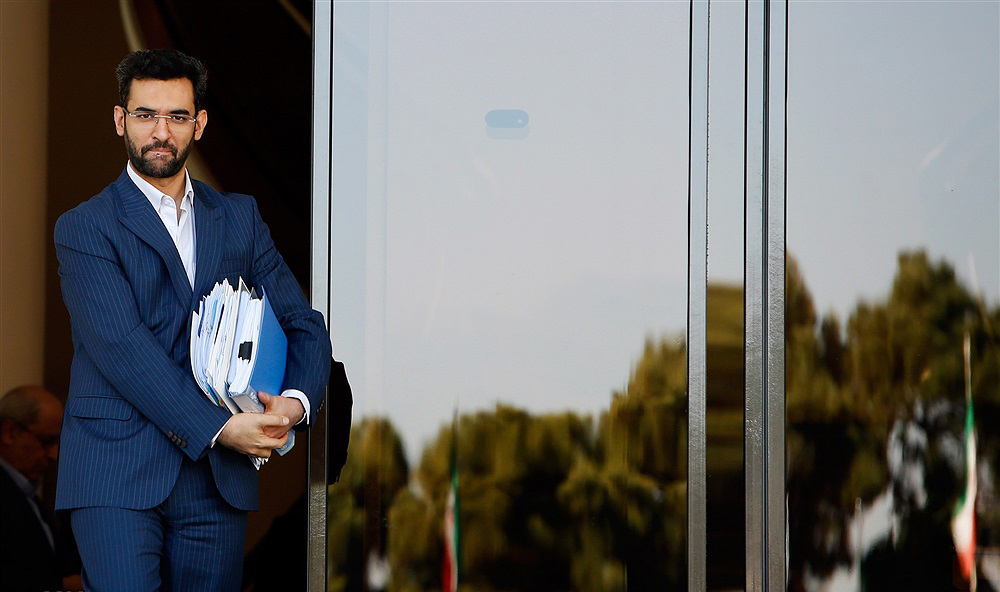Iran Crypto Ban in Line With Currency Policies

EghtesadOnline: Iran’s minister of communications and information technology has addressed the recent ban on cryptocurrency trade and efforts by the country to develop its own virtual currency.
In a talk with IBENA, a news website affiliated with the Central Bank of Iran, published on Friday, ICT Minister Mohammad Javad Azari Jahromi linked the recent cryptocurrency trade and promotion ban by the regulator to the country’s ongoing currency issues.
“The ban on trade of cryptocurrencies and bitcoin by CBI as the financial and currency regulator of the country is to prevent the flight of foreign currency under current circumstances of the country,” he said.
On April 22, CBI notified a directive to the banking system which officially forbids all financial institutions, including banks, credit institutions and money exchanges from handling cryptocurrencies, Financial Tribune reported.
The ban, originally decided on Dec. 30, 2017 by the High Council of Anti-Money Laundering—an entity independent from CBI which is the official regulator of cryptocurrencies— was communicated because “virtual currencies have the capability of becoming instruments for money laundering and financing terrorism, as well as means of transferring money [in possession] of criminals.”
Since April 10 when the government suddenly unified Iran’s dual foreign exchange rate regime to prevent further depreciation of the rial, it has been actively blocking all potential gateways through which foreign currencies can leave the country.
In his remarks on Friday, Jahromi also referred to Iran’s national virtual currency, the news of which he had emerged earlier in February. As he had said at the time, the currency will be created in a joint effort by the telecoms ministry-affiliated Post Bank and the CBI-affiliated Monetary and Banking Research Institute.
Bypassing Sanctions
Many foreign media reports covered the news, but immediately drew comparisons with petro, the national virtual currency of Venezuela, another US-sanctioned country, that was launched months ago. They said Iran is also after circumventing financial sanctions and getting the benefits denied by the US.
Jahromi did not deny that, and in fact said, “The decentralization of virtual currencies and the lack of regulatory supervision over them is one of their fundamental characteristics.”
“All cryptocurrencies have the ability to circumvent sanctions because they are not under supervision from the US financial regulator and this issue naturally exists concerning [Iran’s] national virtual currency as well,” the minister added.
He also emphasized that the currency will be backed by some sort of assets, but did not mention what. He made the comment in response to a question about the sharia-compliance aspect of cryptocurrencies.
A host of recognized Iranian marjas—sources of religious imitation—have said using bitcoin and cryptocurrencies in general is not allowed or at the very least should be prevented if possible, because of existing ambiguities and the possibility of running counter to the law.
According to Jahromi, however, they are not fully and decidedly against the use of all cryptocurrencies as he said “their bans on bitcoin does not mean that their decisions can be extended and generalized toward other cryptocurrencies because the fiqh [Islamic law] problem of bitcoin is that it is not backed by something”.
The minister is a proponent of employing cryptocurrencies to develop Iran’s economy and is of the opinion that they can “exert a significant impact concerning the country’s financial exchange models”.
“The view of the ICT Ministry and various other entities in the country is to have an active participation in cryptocurrencies and blockchain technology,” he said, but also underscored the need for extensive research to introduce the potential of the technology to Iranian officials.
In conclusion, Jahromi stressed that the CBI is the sole regulator of cryptocurrencies.
The regulator is set to unveil a regulatory framework document dealing with cryptocurrencies in general and the national virtual currency by the end of the sixth month of the current fiscal year on Sept. 22.


